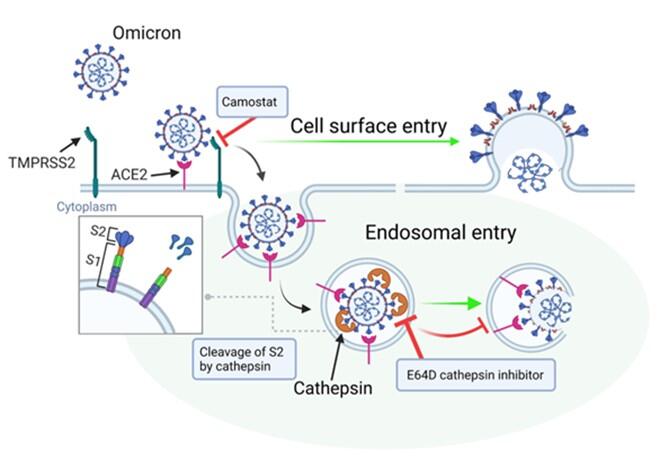As of 2022, the novel-type coronavirus (SARS-CoV-2) has infected over 500 million people worldwide, resulting in more than 6 million deaths. Although vaccination is currently progressing worldwide, much remains unknown about SARS-CoV-2, which emerged abruptly at the end of 2019. Moreover, there is limited knowledge regarding the principles of the infectious pathology of the virus, its replication principles, and their relationship with epidemic dynamics.
The Omicron strain (B.1.1.529, BA lineage), which emerged in South Africa at the end of last year, quickly spread worldwide since it was named on November 26. The strain has now become the main causative variant of the pandemic in numerous countries worldwide, including Japan. The research consortium Genotype to Phenotype Japan (G2P-Japan), led by Associate Professor Sato of the International Research Center for Infectious Diseases at the Institute of Medical Sciences, The University of Tokyo, collaborated with a UK study group. They found that this SARS-CoV-2 variant of concern, the Omicron strain (B.1.1.529, BA lineage), was more resistant than the Delta strain to neutralizing antibodies induced by two doses of therapeutic antibody preparations and vaccines. Furthermore, it was clarified that neutralizing antibodies effective against the Omicron strain were induced by the third vaccination (booster dose) and that the antiviral drug used as a therapeutic agent showed high efficacy against the Omicron strain.
Next, the route of entry of the Omicron strain into the cells was investigated. It was found that the novel SARS-CoV-2 infects the cells through a TMPRSS2-dependent pathway and a distinct cathepsin-dependent pathway. Notably, compared to the Delta strain, the Omicron strain invades the cells in a more cathepsin-dependent manner. This may contribute to changes in the cell types targeted for infection treatment.

Courtesy of The University of Tokyo
Omicron strains were also found to be difficult to control with therapeutic antibody preparations or only two doses of mRNA vaccine. Meanwhile, the efficacy of therapeutic antivirals and booster doses has been clarified. A recent infection experiment conducted on hamsters by the research group showed that the Omicron strains are less pathogenic than the conventional and Delta strains. However, even if the Omicron strains are attenuated, there remains a risk of falling sick or contracting infection of high severity. It is important to continue to take measures against the spread of SARS-CoV-2 infection because of its potential for accelerated epidemic spread and possible medical urgencies, such as another infection wave.
This article has been translated by JST with permission from The Science News Ltd.(https://sci-news.co.jp/). Unauthorized reproduction of the article and photographs is prohibited.




